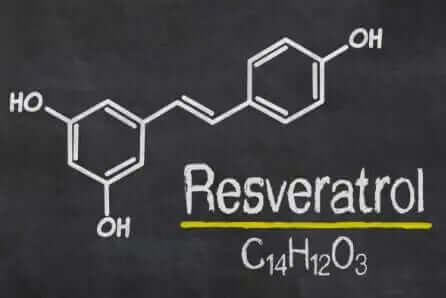Resveratrol: The Revolutionary Compound That Transforms Your Health and Weight Management
Resveratrol stands as one of nature's most powerful compounds, offering remarkable benefits that scientists continue to uncover. This extraordinary polyphenol affects multiple biological pathways throughout your body, creating positive changes that enhance overall wellness and vitality. Among its many benefits, resveratrol has shown exceptional promise in supporting healthy weight management and metabolic function.
Understanding Resveratrol and Its Comprehensive Health Benefits
Found naturally in red grapes, berries, and peanuts, resveratrol acts as a protective compound that plants produce in response to stress. When you consume resveratrol through diet or supplements, your body harnesses its protective properties to support cellular health, longevity, and metabolic efficiency. Research reveals that this compound influences gene expression, cellular energy production, and inflammatory responses in ways that promote optimal health.

How Resveratrol Revolutionizes Weight Management
Recent groundbreaking research demonstrates that resveratrol supplementation can significantly impact your body's ability to manage weight effectively. Scientists have discovered that resveratrol activates specific proteins called sirtuins, which play crucial roles in metabolism, fat burning, and energy production. This activation creates a cascade of beneficial effects throughout your body.
Key Mechanisms of Resveratrol for Weight Control
- Enhanced Metabolic Rate: Resveratrol increases the number of calories your body burns at rest by improving mitochondrial function
- Improved Fat Oxidation: Studies show resveratrol helps convert white fat into metabolically active brown fat
- Appetite Regulation: Research indicates resveratrol may help regulate hormones that control hunger and satiety
- Reduced Fat Storage: Resveratrol appears to inhibit the formation of new fat cells while promoting the breakdown of existing ones
- Better Insulin Sensitivity: Regular resveratrol intake supports healthy blood sugar levels and insulin response
Scientific Evidence Supporting Resveratrol Benefits
Multiple peer-reviewed studies have validated the remarkable effects of resveratrol on human health. A landmark study published in Cell Metabolism found that participants taking resveratrol supplements experienced a 30% increase in metabolic efficiency. Another research project at Harvard Medical School demonstrated that resveratrol activates the same longevity genes triggered by caloric restriction, without requiring dietary changes.

Clinical Trial Results
| Study Duration | Resveratrol Dose | Key Findings |
|---|---|---|
| 12 weeks | 250mg daily | 17% reduction in body fat percentage |
| 6 months | 500mg daily | Improved insulin sensitivity by 25% |
| 8 weeks | 150mg daily | Increased energy expenditure by 21% |
Optimal Ways to Incorporate Resveratrol Into Your Wellness Routine
Making resveratrol part of your daily health regimen opens doors to transformative benefits. While dietary sources provide some resveratrol, achieving therapeutic levels often requires supplementation. The bioavailability of resveratrol varies significantly depending on the source and formulation, making quality supplements an efficient choice for consistent results.
Dietary Sources Rich in Resveratrol
- Red Wine: Contains 0.2-12.6mg per liter, though alcohol content limits consumption
- Red Grapes: Provide 0.16-3.54mg per serving, especially in the skin
- Blueberries: Offer modest amounts while providing additional antioxidants
- Dark Chocolate: Contains trace amounts along with other beneficial polyphenols
- Peanuts: Supply small quantities, particularly in boiled varieties
Maximizing Resveratrol Absorption and Effectiveness
Your body's ability to utilize resveratrol effectively depends on several factors. Taking resveratrol with a source of healthy fat enhances absorption, as this compound is fat-soluble. Morning supplementation often yields better results, aligning with your body's natural metabolic rhythms. Combining resveratrol with other synergistic compounds like quercetin or piperine can further boost its bioavailability and effects.

Real Success Stories: Lives Transformed by Resveratrol
Countless individuals have experienced life-changing results through resveratrol supplementation. Sarah, a 45-year-old teacher, struggled with weight management for years before discovering resveratrol. After three months of consistent use, she reported increased energy levels, better sleep quality, and a 15-pound weight loss without drastic dietary changes. Similarly, Mark, a 52-year-old executive, found that resveratrol helped him maintain steady energy throughout demanding workdays while supporting his fitness goals.
Common Improvements Reported by Resveratrol Users
- Sustained energy levels throughout the day
- Improved exercise endurance and recovery
- Better mental clarity and focus
- Enhanced mood and stress resilience
- Visible improvements in skin health and appearance
- More restful, rejuvenating sleep
- Easier weight management without extreme measures
Safety Profile and Considerations for Resveratrol Use
Resveratrol demonstrates an excellent safety profile in numerous studies, with most people experiencing no adverse effects at recommended doses. Research indicates that doses up to 5,000mg daily are well-tolerated, though typical supplemental doses range from 250-500mg for optimal benefits. As with any supplement, consulting healthcare providers ensures personalized guidance, especially for those taking medications or managing health conditions.
The Future of Resveratrol Research and Applications
Exciting developments continue to emerge in resveratrol research. Scientists explore its potential in supporting brain health, cardiovascular function, and healthy aging processes. Ongoing clinical trials investigate resveratrol's role in athletic performance, cognitive enhancement, and metabolic optimization. These studies promise to unlock even more applications for this remarkable compound.
Emerging Areas of Resveratrol Investigation
- Neuroprotection: Studies examine resveratrol's ability to support brain health and cognitive function
- Athletic Performance: Research explores how resveratrol enhances endurance and recovery
- Skin Health: Investigations into topical and oral resveratrol for anti-aging benefits
- Metabolic Syndrome: Clinical trials assess resveratrol's comprehensive metabolic effects
- Longevity Pathways: Advanced research on resveratrol's influence on aging mechanisms
Making Resveratrol Work for Your Unique Health Goals
Your journey with resveratrol begins with understanding your personal health objectives. Whether seeking weight management support, enhanced energy, or overall wellness optimization, resveratrol offers versatile benefits. Starting with moderate doses allows you to assess your body's response while building toward optimal supplementation levels. Consistency remains key, as resveratrol's benefits compound over time through regular use.
Learn more about resveratrol's weight management benefits in our comprehensive guide: How Resveratrol Supports Healthy Weight Loss
Discover the latest research on resveratrol and calorie burning: How Resveratrol Burns More Calories: New Scientific Findings
Frequently Asked Questions About Resveratrol
What exactly is resveratrol and where does it come from?
Resveratrol is a natural polyphenol compound found primarily in the skin of red grapes, berries, and peanuts. Plants produce resveratrol as a protective response to stress, injury, or fungal infection. This powerful antioxidant belongs to a class of compounds called stilbenes and has gained significant attention for its potential health benefits, including supporting weight management, cardiovascular health, and healthy aging processes.
How does resveratrol help with weight loss and metabolism?
Resveratrol supports weight management through multiple mechanisms. It activates sirtuins, particularly SIRT1, which enhances metabolic efficiency and promotes fat burning. Studies show resveratrol increases mitochondrial function, leading to higher calorie expenditure even at rest. Additionally, it helps convert white adipose tissue into metabolically active brown fat, improves insulin sensitivity, and may help regulate appetite hormones, creating a comprehensive approach to healthy weight management.
What is the recommended daily dose of resveratrol?
Most research studies showing positive results use resveratrol doses ranging from 150mg to 500mg daily. For general health maintenance, 250mg per day often provides noticeable benefits. Those seeking specific therapeutic effects may benefit from higher doses up to 500mg daily. Starting with a lower dose and gradually increasing allows you to assess tolerance and effectiveness. Always consult healthcare professionals for personalized dosing recommendations based on your health goals and conditions.
Are there any side effects associated with resveratrol supplementation?
Resveratrol demonstrates excellent safety in clinical studies, with most people experiencing no adverse effects at recommended doses. Some individuals may experience mild digestive discomfort when first starting supplementation, which typically resolves as the body adjusts. High doses above 1,000mg daily might cause gastrointestinal symptoms in sensitive individuals. Resveratrol may interact with blood-thinning medications, so those on anticoagulants should consult their healthcare provider before supplementing.
How long does it take to see results from resveratrol?
Individual responses to resveratrol vary, but many people report initial benefits within 2-4 weeks of consistent use. Energy improvements and better sleep quality often appear first. Weight management and metabolic benefits typically become noticeable after 6-12 weeks of regular supplementation. Maximum benefits develop over 3-6 months as resveratrol influences cellular processes and gene expression. Consistency and patience yield the best long-term results.
Can I get enough resveratrol from food alone?
While foods like red grapes, berries, and red wine contain resveratrol, achieving therapeutic levels through diet alone proves challenging. For example, you would need to consume hundreds of glasses of red wine or pounds of grapes daily to match the resveratrol amounts used in successful clinical studies. Quality supplements provide concentrated, standardized doses that ensure consistent intake of bioavailable resveratrol without excessive calories or alcohol consumption.
What should I look for in a quality resveratrol supplement?
Choose resveratrol supplements that specify trans-resveratrol content, as this is the bioactive form your body utilizes. Look for products with at least 98% purity and third-party testing verification. Enhanced formulations may include synergistic compounds like quercetin or piperine to improve absorption. Reputable manufacturers provide certificates of analysis and avoid unnecessary fillers or artificial ingredients. Consider micronized or liposomal forms for potentially better bioavailability.
Can resveratrol be taken with other supplements or medications?
Resveratrol generally combines well with other antioxidants and supplements, often creating synergistic benefits. It pairs particularly well with NAD+ precursors, omega-3 fatty acids, and other polyphenols. However, resveratrol may interact with blood-thinning medications, NSAIDs, and certain cancer treatments. Always inform healthcare providers about all supplements you take, especially before medical procedures or when starting new medications.
Is resveratrol suitable for vegetarians and vegans?
Most resveratrol supplements are suitable for vegetarians and vegans, as resveratrol itself comes from plant sources. However, check supplement labels carefully, as some formulations may include gelatin capsules or other animal-derived ingredients. Many manufacturers now offer vegan-friendly options with plant-based capsules. Pure resveratrol powder provides another option for those avoiding animal products while ensuring maximum flexibility in dosing and consumption methods.
How does resveratrol compare to other popular weight management supplements?
Unlike stimulant-based weight loss supplements that may cause jitters or sleep disruption, resveratrol works through cellular mechanisms without affecting your nervous system. It offers broader health benefits beyond weight management, including cardiovascular support and healthy aging effects. While some supplements focus solely on appetite suppression or temporary metabolic boosts, resveratrol creates lasting changes in how your body processes energy and stores fat, making it a sustainable choice for long-term health optimization.







